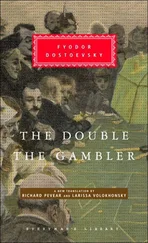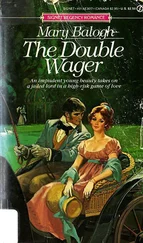“Nope.”
“Really?”
“Which word didn’t you understand? We’re meeting at the church and leaving around nine o’clock. Want to come?”
“I don’t think so.”
“You could ride in the church van. Seats seventeen. And there’s no better way to vomit up breakfast than an hour-long drive in a church van.”
“And no better way to wind up on the front page of a newspaper. ‘Church van’ is Latin for ‘tragic accident involving children and well-meaning grown-ups.’ You could look it up. It’s part of the first-year curriculum at the med school: biochemistry. Embryology. Church vans.”
“ Laurel will be there.” She looked down at the glossy piece of paper in her hands. He had a feeling she’d looked away because she wasn’t able to keep a straight face when she told him this tidbit. He wondered if his interest in Laurel was that obvious.
“What exactly do you do when you play paintball?” he asked. “I have this vision of a lot of paunchy, poorly socialized guys in camouflage pants running around the woods shooting blobs of paint at each other.”
“That sounds pretty accurate. But there are teams. And a referee.”
“A referee?”
“Uh-huh.”
He had little desire to spend the day with the high school kids in her church youth group. But there wasn’t anything else he had planned for Saturday until early in the evening, when he was meeting his aunt and uncle for dinner. They’d come to Vermont to see the foliage, which-much to their disappointment-was still a few days away from its colorful, almost hallucinatory peak.
“What time will you get back?” he asked.
“No later than four or four-thirty.”
He reached over for the brochure and scrutinized the map of the field. He couldn’t imagine himself doing this. But, then, he couldn’t imagine Laurel doing it, either.
“We’re going to spend most of our time there,” she said, pointing at a series of waving, topographic lines. “That’s Calamity Ridge. There’s a fuel dump we’re going to capture.”
Something about the words fuel dump made it all seem less abstract to him. “Doesn’t any of this make you uncomfortable in light of Iraq?”
Talia turned and stared squarely at him. “I have three friends from school in the Guard, all of whom have been to Iraq or are there right this second. One spent a month in Tikrit. If you come with us tomorrow, you will meet two kids who have older siblings in the Guard, one of whom was in Fallujah. I am neither an oblivious chick who hasn’t a clue about what’s going down in the Middle East, nor a sociopathic neocon who gets off on playing war. Okay? This is a game. And in my opinion, it’s a heck of a lot more wholesome than their PlayStation games-than your PlayStation games, for all I know-about snipers and terrorists, if only because they’re running around outside in the fresh air instead of sitting around inside their stuffy rooms hunched over their game consoles. The kids want to do this. Some do, anyway. They view it like capture the flag or touch football. I view it as a way to build teamwork and show them that there are adults out there-and, I know it pains you to admit this, Whit, but you are an adult in their eyes-who care about them. Who feel like hanging around with them. So, to answer your incredibly agenda-rich little inquiry: No, it does not make me uncomfortable. Okay?”
He nodded, slightly shell-shocked. He had a PlayStation. He told himself that he still played it on occasion to blow off steam. Reduce stress. He told himself it was…medicinal.
“You in?”
He nodded again. He sensed instantly after her little diatribe that he didn’t dare say no.
ONE NIGHT in early August, Whit had gone dancing with Laurel and Talia and two of their friends from UVM-a nice-enough guy named Dennis and a girl named Eva. They were a pack, or what Talia liked to refer to as a herd. It was a Thursday night and they met their friends at a club on Main Street a little past ten. Whit was still getting to know Talia and Laurel, and so he was flattered when they knocked on his door and absconded with him. He felt considerably younger than his housemates across the hall then, because he had only finished college three months earlier and was going to be a student for the next couple of years. Consequently, Talia and Laurel were not merely older women: They were older women with jobs. Granted, they both worked in fields that allowed them to dress essentially as they had when they had been students, but they still had a weekly paycheck-something he didn’t.
The club wasn’t especially crowded because the area colleges weren’t yet back in session, and so it might have been one of those evenings that grew awkward quickly. But it didn’t, largely because they were a gang. He danced with Laurel and he danced with Talia and he even danced for a few minutes with Eva. She worked in the marketing department of a large shopping mall just outside of Burlington, and was the only one in the group who actually had that urban chic look down.
He was already attracted to Laurel and savoring their opportunities to talk when the band was between sets. His sense, even at the time, was that he was far more interested in dancing than she was. Still, she was having fun. He could tell.
It was on the way home, however, that he understood precisely why he was falling for her. Talia and Dennis were going to stay at the club for the last set, but Eva and Laurel were ready to go. They had more rigid hours than Talia and actually had to get up in the morning. And so the three of them left about midnight and started walking home, planning to drop off Eva first before he and Laurel continued up into the hill section of the city where they lived.
They had gone three blocks when they saw the transient. He was sitting on a red plastic milk crate, slumped against a brick wall, enveloped by a black raincoat with the sleeves cut away. He was in the shadows, and so they smelled him before they saw him. His face was long, though much of it was hidden behind a thick nest of beard, and his hair hung in twisted, dirty ropes down the sides of his head. He was bald on top, and his skull there was dotted with sores. Whit guessed he was fifty-five or sixty, but Laurel would tell him later that he was probably no more than forty-five. Eva noticed him before Whit and Laurel did, and she took Whit’s arm and started to lead them across the street and away from the man. Whit wasn’t aware of what she was doing, and so he allowed himself to be led. But then he inhaled the stench and turned and saw the fellow. He was awake and whispering to himself. He wasn’t shouting, but his low mumbling, once they were aware of it, might have been even more disconcerting.
Laurel went right to him. She squatted before him and got his attention. Asked him his name and told him hers. She certainly didn’t pull him completely from his own planet back to theirs, but while Whit and Eva had stood unmoving and mute, fearful, Laurel was taking his hand in hers-and Whit understood clearly that taking the soiled hand of a transient was both an act of mercy and of bravery-and leading him to his feet. Laurel told them that they should go on ahead, but they didn’t. They went with her as she escorted the man to the shelter. There were beds left because it was summer and the homeless can endure a lot longer outside, and with the night manager’s help she got him showered and fed, and then she convinced him to sleep inside that night. It took her about an hour to get him settled. The fellow didn’t talk to the rest of them. He really didn’t say a whole lot to Laurel. But he stopped his murmuring and his eyes no longer darted like the orbs in a pinball machine. They locked on to Laurel ’s, and it was clear he felt safe around her. Whatever conspiracies were after him, whatever delusions had led him to the street, momentarily were checked.
Читать дальше












